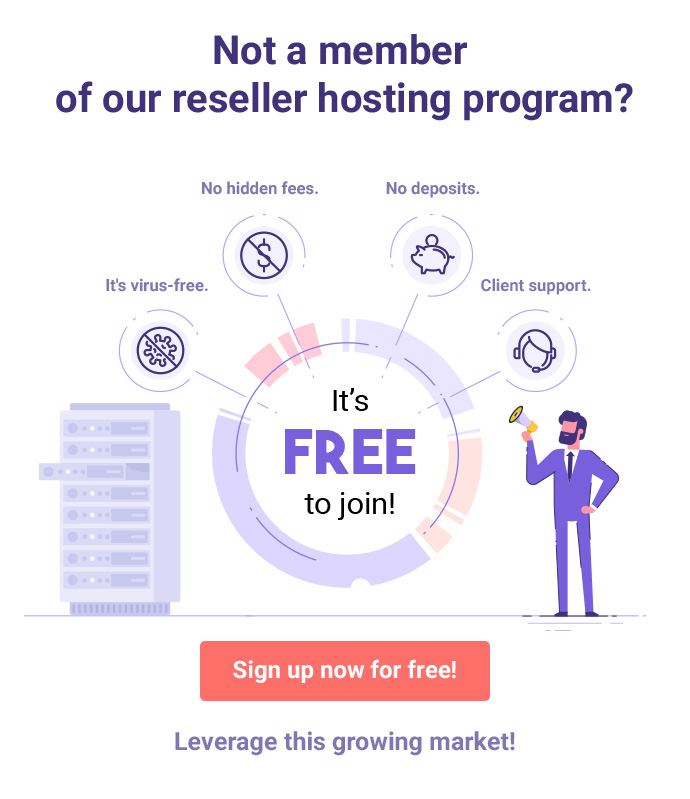SEO Basics: Small business tips for driving traffic to your online store

If you already have an online store or want to build one, you need to take steps to ensure it’s visible.
So, how can you achieve this? The answer is simple: by employing effective search engine optimization (SEO) techniques for your reseller hosting store.
What is SEO for e-commerce?
Search engine optimization for e-commerce helps online stores rank higher in search engine results.
With a well-designed, optimized, and high-quality-content-rich website, your store will be more visible in search engines and more likely to attract customers and drive sales.
SEO has one of the highest ROIs of all marketing strategies and has the capacity to transform a business. Despite this, it is still common for businesses to build their websites without taking SEO into account.
Instead, they often rely heavily on social media platforms or paid advertisements which can lead to positive results in many cases but require consistent effort and ongoing financial investment.
In fact, companies spend billions of dollars each year on advertising expenses – an amount that continues to rise exponentially.
Perhaps they simply don’t know where to begin with implementing effective SEO strategies?
Listed below are a few helpful SEO tips to get you started on your web hosting business track.
It will take some effort and time upfront, but once you achieve a high ranking, sales can be generated effortlessly without any ongoing costs.
Choose the right keywords
Selecting the appropriate keywords for your online store is crucial. A recent worldwide retail survey revealed that over half of the participants prefer to search on Google before making any online transactions.
Therefore, it becomes imperative for your store to rank well for relevant keywords in order to attract potential customers.
Conducting keyword research is an essential first step in any e-commerce SEO strategy.
It guarantees the selection of target keywords that are not only relevant but also have reasonable ranking prospects, substantial search volume, and high chances of converting visits into actual sales.
With tools like the Google Keyword Planner you can pinpoint relevant keywords by analyzing their search volume and cost per click (CPC), which ultimately reveals potential buyer interest.
By installing the Keywords Everywhere browser extension, one can access valuable data regarding a keyword’s search volume and its ranking prospects on Google.
Apart from the tools, evaluating actual search results provides valuable insights into various aspects, including the overall competitiveness within a specific market.
If you have competitors who rank higher than you in search results, you can use their site to take keyword ideas.
First, type your keyword into Google, choose a competitor, and scan their category and product pages for potential keywords.
It is important to remember that you shouldn’t blindly use the same keyword as your competitors simply because they outrank you; there are other factors in play such as domain authority.
Optimize web pages for those keywords to improve ranking
Once you’ve identified the appropriate keywords, your next task is to strategically position them on your website’s most significant pages for optimal ranking.
When users come across these pages in a Google search, they gain immediate access to all the products within that specific category.
To effectively optimize these pages, it is crucial to incorporate your desired keyword in the following onsite positions:
- The URL – pay attention to the URL structure and ensure that it incorporates relevant keywords. Placing your primary keyword in the URL is a straightforward method of enhancing search rankings. Create a readable URL that accurately reflects the content on the page;
- The title tag (H1) – another key element to consider. It is advisable to position your keyword as close to the beginning of the title as possible on product and category pages;
- Image alt text – don’t overlook image alt text as Google relies on this text to interpret images. Including keywords in alt text provides another opportunity for incorporating relevant terms and improves visibility in Google image searches. To capture attention and enhance customer conversion rates, use high-quality pictures and graphics whenever possible. Fiverr and Canva are valuable resources for obtaining such visuals;
- Body copy – since Google is in effect a research tool, text-rich websites tend to receive favorable treatment because they provide visitors with answers to their queries more effectively. Aim for an intro text section consisting of at least 300 words, including 2-3 instances of your chosen keyword;
- Description tag (or metadata) – including keywords in the metadata of your product and category pages does not directly affect ratings. However, it does result in the keywords appearing in bold text in search results, which can enhance click-through rates and ultimately improve rankings.
Improve site structure and navigation
SEOptimizing an e-commerce store is more than just incorporating relevant keywords. It is equally important to focus on the technical aspects of a website.
It is crucial to consider the following on-page elements when optimizing your site:
- Website structure – the way you organize your navigation, category pages, and product pages plays a vital role in making your most significant content easily accessible to potential customers. By ensuring that relevant content is placed closer to the homepage and reducing the number of clicks required to reach it (ideally no more than three), you can enhance user experience significantly. A well-structured site should prominently feature links from the homepage leading visitors directly to major category and key product pages.
- Internal linking – by strategically placing internal links in your pages, you are essentially creating an interconnected ecosystem within your site. This not only facilitates smooth navigation but also increases engagement levels and boosts conversion rates. Moreover, internal linking helps distribute authority from your homepage across various pages on your site, thereby increasing their chances of ranking higher in search engine results.
- Mobile responsiveness – ensuring easy navigation across various devices is crucial in today’s digital landscape. Recent reports indicate that over 60% of organic Google searches are now conducted on mobile devices. Therefore, optimizing a website for mobile responsiveness is vital for an effective SEO strategy.
- Page speed – page speed directly impacts both search engine rankings and user experience; Studies have shown that approximately 40% of users will abandon a site if it takes longer than three seconds to load; To evaluate your site’s performance, you can utilize Google’s PageSpeed Insights Tool by entering your URL. It will provide you with a score ranging from 1 to 100 for both Mobile and Desktop versions, along with recommendations on how to improve load times such as installing caching plugins or compressing large files, etc. Regular site audits are highly recommended to ensure all components function correctly. Utilizing tools like Ahrefs, DeepCrawl, or SEOmator can help identify issues such as broken links or missing image alt texts that need improvement.
- Sitemap – including a sitemap file on your website provides information about the pages and files present on your site. Acting as a guidebook for search engines like Google, the sitemap highlights which pages hold more significance within your website structure.
Create backlinks through quality content and relationships
Apart from employing SEO techniques, you can enhance your search rankings through the creation of valuable and relevant content, as well as obtaining backlinks from other websites.
Backlinks originating from websites with a strong domain authority can significantly boost rankings, surpassing the impact of almost any other ranking factor.
This process may be slightly intricate and time-consuming compared to making minor adjustments to your website.
The following are some highly effective and relatively simple link-building strategies:
- Resource pages – a webpage containing easily shareable blog posts or FAQs can also help to establish relevance and authority. To find relevant resource pages in the web hosting industry, you can use the search term “inurl:resources + web hosting” (you can replace “web hosting” with any other industry keyword you want) on Google. Once you identify potential pages, add them to a spreadsheet and reach out via email to request the inclusion of a link to your site.
- Partnering with influencers / guest blogging – partnering with influencers or guest blogging allows you to get links back to your store site, driving traffic and improving search rankings. For example, you could have a backlink featured in a blog post with engaging product descriptions or secure a link from an existing page on an influencer’s website. Both of these tactics offer valuable opportunities for increasing visibility, attracting new visitors, and enhancing the online presence of your store site.
Measure your SEO progress
Tracking the progress of your SEO campaigns may not be as immediate as calculating ROI with paid advertising.
It requires time and patience to measure progress accurately. Fortunately, Google Analytics offers a cost-free solution for this purpose.
Apart from monitoring rankings, it is crucial to pay attention to more nuanced signals such as spikes in search traffic and the performance of landing pages.
These key indicators can assist in identifying the specific keywords for which your website is ranking effectively.
***
From social media to paid advertisements to email, there are many ways to get traffic. There is, however, only one traffic source that is free, useful, and relatively easy to obtain: organic search traffic.
Although it does require some initial effort, there are numerous tools and resources available to assist you along the way.
To gain a comprehensive understanding of SEO fundamentals for small businesses, we recommend downloading the SEO Basics for Small Business ebook provided by our trusted partners at Neustar – the .US registry.
The effort it takes to acquire high-quality website visitors who become loyal customers is definitely worth it.



Leave a Reply